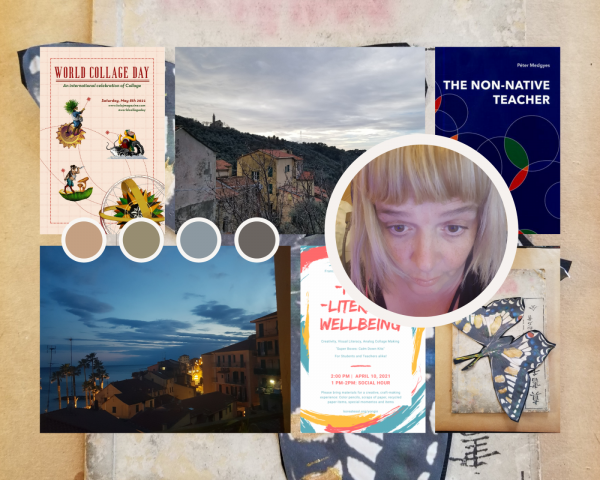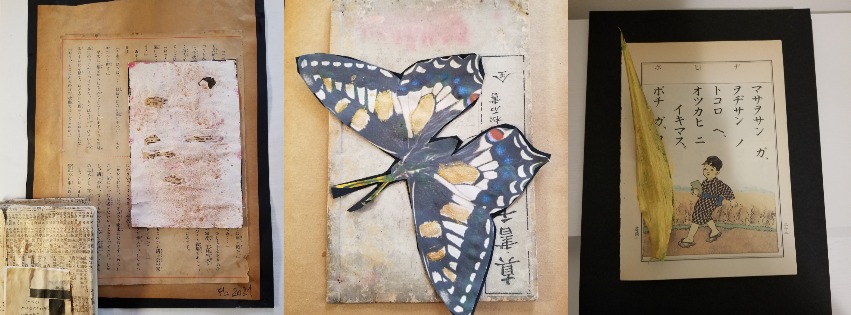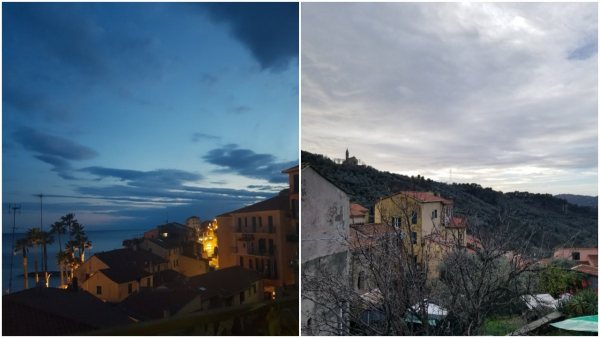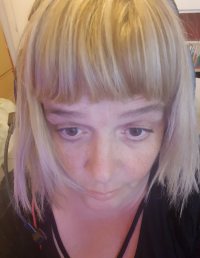
May 2021
This month's voice:
Francesca Mazzucato, "From Italy to KOTESOL: A Story of Collage and Passion"
Introduction
Lindsay Herron
Editor, KOTESOL Voices
When I looked at the program for the 2021 KOTESOL International Conference, I was impressed by the plethora of promising-sounding presentations, many of them oriented around digital contents and educators' online responses to the pandemic. Among the listings, though, two in particular stood out to me: one called "Play with Me!" and another with the enticingly tactile title "Touch the Scraps: Analog Collages and Art Journals in ELT Classrooms." Both were by the same presenter, Francesca Mazzucato, and I was immediately captivated by the concept of kinesthetic, embodied learning in the current age of COVID-induced social distancing.
When Francesca graciously agreed to contribute to KOTESOL Voices, I was excited to see what this creative educator would send us, and I certainly wasn't disappointed! The piece that follows is a thoughtful, candid reflection on the struggles and self-doubt of a non-native English speaker—and her ultimate triumph on manifold levels as she finds her strengths, her niche, and her voice in the ELT ecosystem. It's both powerful and inspiring, and I'm grateful to Francesca for sharing her path with us. (As a side-note, I'd like to highlight her gift for coming up with amazing titles!) Happy reading!
From Italy to KOTESOL: A Story of Collage and Passion
By Francesca Mazzucato
I am so happy that my contribution for Voices is in the May issue because Saturday the 8th is World Collage Day, an international celebration of collage. It seems like fate! But let’s start at the beginning.
I am a passionate English teacher and teacher trainer, and I live in one of the European countries with the lowest levels of English proficiency. I have always been sorry for this; I have always felt guilty, and it seemed a disadvantage, something taken for granted that I could not modify in any way. When I started my long road with the English language, it seemed clear that the only possibility for me was to do everything possible to seem like a native speaker, to hide my Latin origin, and of course the result was that I seemed like a bad copy of a native. I started in front of the mirror trying to change my pronunciation (what a terrible effort, the vowel diphthongs!). I think I discovered “shadow reading” without even knowing that it was a powerful method of learning, years before teaching it to my students.
People in Latin countries don’t speak English; and if they do, it is bad English. I couldn’t win that challenge; I could only do my best to hide my Italianità. It was not just my problem but everyone’s problem, a problem that turned into an insurmountable difficulty. How can you sound like a native if you’re gesticulating, speaking with the wrong intonation, or managing to change the pronunciation in a ridiculous way, without considering other non-natives in any way except with a little sense of condescension? It was a strange period for me. Now I think about it with a smile, but I had to study a lot and work a lot in order to overcome the inner critic sitting on my left shoulder telling me, “You are Italian; you are not a native; you are a bad copy of an English speaker; don’t bother, it will never change.” That inner critic can be our worst enemy and can destroy our confidence. I was paying too much attention to that stupid monkey leaning on my shoulder boycotting me and telling me that I would never make it.
I have always been stubborn, though, and above all, English has always been fundamental for me. (I also speak Italian, French, German, and a little Serbian.) I graduated; I took all the possible certifications; and I became a member of IATEFL. That was a real turning point. I started following conferences all over Europe; I met other colleagues; I heard about English as lingua franca; and I discovered The Non-Native Teacher by Péter Medgyes (1999):
The issue of being identified as either a native or non-native teacher of English has always been a very controversial and, to some extent, painful one for many professionals. Some native speaker teachers of English (NESTs), for example, feel that they somehow lack knowledge of grammar or sufficient understanding of how languages are learnt. On the other hand, non-native speaker teachers of English (non-NESTs) are often aware of their own language gaps and the fact that they cannot possibly ‘compete’ with a native in terms of command of the language, with all its idiosyncrasies and subtleties. (Introduction by William Chaves Gomes, n.p.)
So, I realized, there were two aspects of the problem!
I started thinking about it in a different way. I decided I could be a good English teacher and that I didn’t want to compete with the natives, but I wanted to broaden my field of expertise to become completely bilingual and be able to offer a broader and more accurate communication experience to my students (because we teach English, but we teach communication on many different levels, don't you think?).
One day I silenced the monkey, and I gave one of my first workshops. Since then, I have participated in many international projects; I worked as a teacher trainer in Myanmar; and I attended their TESOL online conference as a speaker. I had something important to share in the challenging year of the pandemic.
I am also a collage artist, and over the course of 2020, I started doing research on the use of collage applied to ELT. I discovered how, during online lessons, collage and meditation can really help students. Analog collage, touch-and-paste paper, and some meditation exercises can make students feel motivated and help them rediscover landmarks that seemed completely overturned by the effects of the coronavirus pandemic and by the ensuing isolation.
I also held some seminars in France and Italy; I collaborated on international projects in Thailand, Indonesia, and Serbia (where I currently teach refugees and displaced people, who are wonderful and passionate students); and then I heard about KOTESOL and the annual international conference. It seemed very interesting. KOTESOL told me that it would be a fantastic opportunity to learn and exchange ideas with colleagues, and it would be open to everyone’s participation (with good ideas and proposals, new projects and different perspectives), even people from other countries.
At the 2021 KOTESOL International Conference, I held three seminars dedicated to play, analog collaging with cardboard cutouts, and visual literacy. They are all my field of expertise, and this participation in the conference was a great occasion for me. Two months after that, the Yongin KOTESOL Chapter invited me to hold a new seminar, “Play, Literacy, Wellbeing: Creativity, Visual Literacy, and Analog Collage-Making for Students and Teachers.” I was happy to be invited again, and it was really fantastic, with very good feedback from the participants, who enjoyed participating, learning, meditating, and cutting and pasting together.
Since then, I have continued to apply this creative side of ELT in different fields, obtaining excellent results with children and adults, and my next seminar will be in Serbia. I am working on my research, and I hope to finish it soon. My inner critic has flown off my shoulder—a weird, petulant flying monkey; and when I feel he might come back, I know I don’t have to pay him any attention.

Collages from Francesca's workshops

The Italian Landscape
About the Author

I am a free professional European English teacher. I am also a teacher trainer, linguistic coach, speaker at international conferences, collage artist, and writer. I had an internship at the European Parliament Library, and I have a degree in humanities, TESOL, TEFL, and many other specific certificates. I studied with Nick Billbourgh and Peter Dyer, and I’ve followed Zsofia JakabI and Audrey Wessels.
In 2020, I started specific research into children's play and creative work with analog collage and art journals in the context of ELT. Rethinking and daring with creativity is, in my opinion, one of the most crucial points in the evolution of English teaching and a focus of my interest and studies.
I have worked online since 2013 with students of all ages and nationalities. I have been teaching online to migrant, refugee, and displaced people in Italy and abroad, and I am currently teaching at The Workshop, Belgrade. I have also taken part as a volunteer in many international projects. Volunteering, I believe, is a way to feel more complete as a woman, a professional, and a teacher.
References and special thanks to:
James Rush
Wayne Finley
Kolaj Magazine
The Workshop, Belgrade
The poster for World Collage day (in the photo collage at the top of this page) is a creation of Colombian collective Red Collage.


